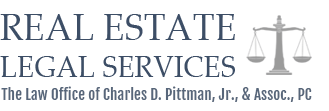Lingering Missinformation on Short Sales
Among our sustained flow of new short sale clients, we still have surprising instances of absolute misinformation about the process that causes many homeowners to suffer from the paralysis of analysis and delay starting their short sale for far too long. Sources of misinformation are plentiful, and that is before you even get to the internet. One perfect short sale candidate recently interviewed us and was certain he should pursue a deed-in-lieu-of-foreclosure rather than a short sale. When asked why, it was because a college roommate owning property in the southwestern part of the U.S. told him so. Besides out of state friends, other bad information often comes from in-state professionals who dabble in foreclosure prevention or short sales. They do nothing to stay abreast of changing trends and policies with the lending community, governmental entities like Fannie Mae, FHA, or Freddie Mac, or other mortgage loan servicers and investors. They often give you the best information on the process from 6 or 12 months ago.
Some of the worst and most self-serving misinformation comes from the lenders themselves. They don’t always mean to be devious, but they do little to correct the “right hand – left hand” phenomenon. What begins with a conversation with someone in customer service often takes the borrower off of high alert and leaves them with a false sense of security. “BTW, the folks over in collections are going to be sending you some notices. You can ignore those notices . . . . ” Big Mistake! Or “you have to miss a payment and be late.” Often, no attempt is made to clarify for how long payments should be missed, or what the consequences might be, or whether the lender that is telling you to miss a payment will themselves report it on your credit report. We have many strategies to soften and limit the impact of missed payments and other lender advice.
The bottom line is that what may be a good idea in neighboring state may not be a good idea in Virginia! Foreclosure defense here is nothing like it is in a “judicial foreclosure state”. Lenders in Virginia are not required to obtain the court’s permission to foreclose and rarely file anything in court to foreclose. When something official is filed and served on the borrower, it is often too late to prevent the foreclosure and may be notice of eviction! Another myth that lenders often do little to combat is that a “deed-in-lieu-of-foreclosure is quick and easy and will give you closure on this difficult chapter of your life.” In fact, it is rare for “DILs” to take less than 60 to 90 days to process, often periods longer than a short sale, and they do sometimes come with strings attached, e.g., a deficiency note to pay over time. The devil is in the details. Shame on you if you sign a DIL without having an attorney review it first. Also, the process is not really helpful at all if the lender’s new title search reveals that you have a 2nd mortgage, tax liens, condominium liens, or other judgments against the borrower’s property. Those liens may all be “wiped out” easily under Virginia foreclosure law but they must be negotiated and settled with a DIL. Most lenders are not willing to try to do that kind of debt negotiation and release, they simply default to foreclosure when there are other liens and many times the borrower is the last one to find out that the lender is giving up on the DIL and is actually foreclosing. Too many homeowners in Virginia waste precious weeks thinking the lender is their friend and the whole situation will just magically go away with a DIL and they miss precious time on the market with a good realtor. Interestingly, many lenders require listing the property on the open market for a minimum period of time (e.g, 90 days) before they will even consider a DIL.
Finally, if you are just looking for peace from harassment and aggressive collection tactics, DIL, Modification, etc., may not prevent the bank’s left hand from pursuing these remedies while your “friends” in other departments tell you to ignore them. Nothing brings you a defense from harassment quite like having an attorney in your camp to be the point of contact for the bank. Some of our clients even change their number, or give the lender our law firm’s phone number as the only contact for the borrowers. We delight in holding debt collector’s at bay by requiring them to identify themselves and behave according to the law. All borrowers have a right to be free of certain things:
1. Debt collectors may not harass you.
2. Debt collectors may not make idle threats.
3. Debt collectors may not withhold pertinent information .
4. Debt collectors may not misrepresent themselves.
5. Debt collectors cannot shame you into paying up.
6. Debt collectors may not threaten to throw you in jail.
7. Debt collectors may not use abusive language.
8. Debt collectors may not overcharge.
Read more background on how these rules apply: http://www.nasdaq.com/article/8-things-debt-collectors-may-not-do-cm439025


